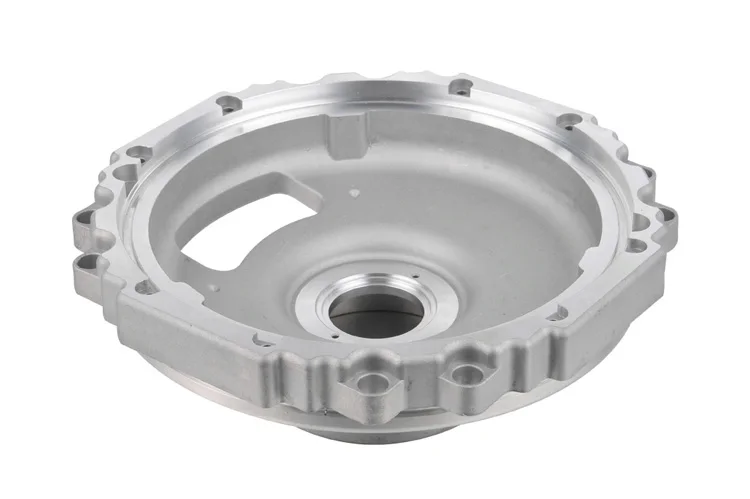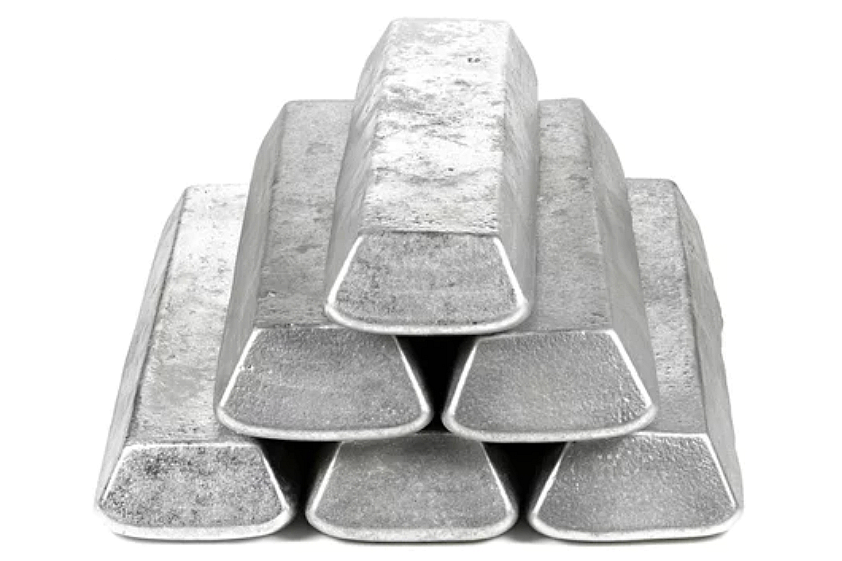Key features that make Precision aluminum casting a top choice in metalworking
The Function of Aluminum Foundries in Progressing Lightweight Production Solutions
Aluminum foundries greatly add to the evolution of light-weight production remedies. Their cutting-edge casting innovations generate high-strength, lightweight elements essential for industries such as automobile and aerospace. This improvement not just improves product performance but also promotes sustainability via making use of recycled products. As these shops adjust to emerging technologies and techniques, they pave the way for future growths in manufacturing efficiency and ecological obligation. What lies in advance in this transformative trip?
The Benefits of Lightweight Materials in Manufacturing
As industries significantly seek effectiveness and sustainability, the adoption of lightweight products in production has actually emerged as a vital approach - Precision aluminum casting. These materials, specifically light weight aluminum and composites, provide numerous benefits that boost production processes and item performance. Primarily, their minimized weight contributes to lower power usage during transportation and operation, causing substantial expense financial savings
Light-weight materials facilitate the style of more facility geometries, allowing for better development in item growth. This adaptability typically leads to boosted capability and efficiency, providing to the progressing demands of contemporary consumers.
In addition, making use of lightweight materials can enhance the long life of products because of their resistance to deterioration and fatigue. This durability not just lowers maintenance costs however also sustains sustainability efforts, as longer-lasting products add to much less waste. To summarize, the advantages of light-weight materials are pivotal in driving efficiency, advancement, and ecological duty in production.
Developments in Light Weight Aluminum Spreading Technologies
Current improvements in aluminum casting innovations are revolutionizing the manufacturing landscape, particularly in the production of light-weight elements. Developments such as high-pressure die casting and vacuum die spreading have substantially improved the accuracy and surface coating of aluminum parts - aluminum casting. These techniques allow for the creation of complex geometries while reducing material waste and enhancing mechanical buildings

In addition, the execution of real-time monitoring systems ensures high quality control throughout the casting process, leading to even more consistent product end results. Jointly, these developments not just boost the performance of aluminum elements however also support the industry's shift towards even more sustainable production methods.
Applications of Aluminum Parts in Different Industries
While light weight aluminum elements have long been used in numerous markets, their versatility and lightweight residential properties proceed to drive cutting-edge applications throughout industries such as auto, aerospace, and construction. In the auto sector, light weight aluminum is significantly used for engine blocks, wheels, and body panels, improving fuel effectiveness and efficiency. Aerospace suppliers utilize aluminum for aircraft frameworks and parts, maximizing its strength-to-weight ratio to enhance gas economy and haul capability.
In the building and construction industry, light weight aluminum is preferred for window frameworks, roofing, and structural components, giving sturdiness and resistance to rust while decreasing general structure weight. In addition, the electrical and electronic devices sectors profit from aluminum's conductivity and light-weight nature, utilizing it in electrical wiring, enclosures, and heat sinks. These varied applications highlight the crucial duty of aluminum parts, which not only fulfill sector needs however likewise add to advancements in item layout and functionality across numerous fields.
Sustainability and Power Efficiency in Aluminum Foundries
The light weight aluminum foundry sector plays a image source crucial duty in promoting sustainability and power efficiency, especially as demand for lightweight parts remains to expand across various markets. Foundries are significantly taking on eco-friendly techniques, such as using recycled light weight aluminum, which significantly lowers power intake and greenhouse gas emissions contrasted to key light weight aluminum manufacturing.
Furthermore, developments in casting modern technologies boost energy performance by optimizing the melting processes and minimizing waste. Methods like die spreading and financial investment casting permit for specific product usage, minimizing excess and scrap.
In addition, numerous shops are investing in renewable energy resources to power operations, even more lowering their carbon footprint. Carrying out energy administration systems enables factories to monitor and improve power usage, ensuring they operate at peak effectiveness.

Future Fads in Lightweight Production Solutions
Exactly how will emerging innovations shape the future of lightweight manufacturing services? Technologies such as advanced materials, automation, and additive production are established to redefine production processes. The integration of clever manufacturing innovations, consisting of the Net of Things more helpful hints (IoT) and artificial intelligence (AI), will allow real-time monitoring and optimization, enhancing performance and minimizing waste.

As sustainability remains to be a vital problem, lightweight options will significantly focus on reusing and recycling materials, aligning with circular economic situation concepts. This advancement in light-weight production will not only enhance item efficiency however also add to environmental objectives, ensuring that the sector stays affordable in a rapidly changing market landscape.
Regularly Asked Concerns
Just How Do Aluminum Foundries Ensure Quality Control in Manufacturing?
Light weight aluminum factories guarantee quality control in production via extensive testing, standard procedures, and constant monitoring - Precision aluminum casting. They implement skilled employees and innovative innovations to keep uniformity, reduce problems, and satisfy industry requirements throughout the production process
What Are the Key Challenges Encountered by Aluminum Foundries?
Aluminum shops face obstacles such as varying resources prices, maintaining production effectiveness, making certain constant quality, adapting to technical innovations, and meeting environmental guidelines, all of which effect their total functional efficiency and competition on the market.
Exactly How Does Light Weight Aluminum Recycling Effect Foundry Operations?
Aluminum recycling considerably enhances factory operations by lowering basic material expenses, minimizing energy intake, and lowering environmental impact. This sustainable technique enables factories to boost efficiency while fulfilling enhancing demand for light-weight, high-performance aluminum products.
What Abilities Are Required for Workers in Light Weight Aluminum Foundries?
Employees in light weight aluminum article source shops call for abilities in metallurgy, machining, quality assurance, and safety techniques. Effectiveness in operating machinery, comprehending alloy residential properties, and problem-solving are also vital for effective manufacturing and preserving high security standards.
Just How Do Light Weight Aluminum Foundries Manage Waste Monitoring?
Aluminum foundries take care of waste with reusing scrap metal, utilizing reliable waste segregation techniques, and sticking to ecological policies. They execute lasting techniques to decrease land fill payments, ensuring that unsafe materials are thrown away properly.
Light weight aluminum factories substantially add to the development of light-weight production options. Recent advancements in light weight aluminum casting technologies are revolutionizing the manufacturing landscape, particularly in the manufacturing of light-weight elements. While aluminum components have actually long been made use of in different industries, their adaptability and lightweight buildings continue to drive innovative applications across sectors such as auto, aerospace, and building and construction. In addition, the electric and electronic devices industries profit from aluminum's conductivity and light-weight nature, utilizing it in wiring, rooms, and warm sinks. The light weight aluminum foundry industry plays a crucial duty in promoting sustainability and power performance, specifically as need for light-weight components continues to grow across different sectors.